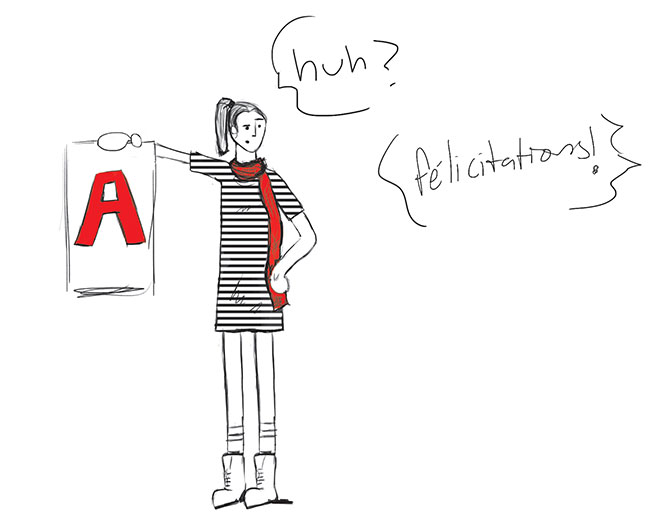The bottom line: Some students value GPAs over real knowledge
January 29, 2014
Erin Layne spends nearly 10 hours a week studying and working on class projects outside of the classroom, working toward the goal of a transcript with all As and Bs. One C on her semester grades will put her $600 in debt.
“I’m living with my aunt [in Kent] and she has a bet going with me,” Layne said. “I can live there rent-free as long as I get all As and Bs. If I get a C or lower, I have to pay her $100. Last semester, I got a C and I had to pay her $100 a month until I got all As and Bs again. That was $600 out of my pocket that I wasn’t expecting.”
For Layne, junior digital sciences major, grades trump learning when it comes to classroom experience. From a young age, her parents put a strong emphasis on the importance of good grades.
“Everything was always about getting the better grade; the content didn’t matter as much,” Layne said. “But now that I’m an upperclassman, [the content] is starting to become more useful. So it’s both but more about the grades.”
From kindergarten to 12th grade, many students are expected to achieve certain grades and receive pressure from teachers, counselors and parents. Admission to college requires a certain GPA. The transition to college can be tough because students don’t know how to balance the importance of grades and learning.
Junior public health major Cody Burke has felt the pressure since a young age.
“In high school and elementary school, my parents always put a big focus on getting good grades,” Burke said. “I want to go to grad school when I’m done with my undergrad and you need a good GPA for that.”
Although Burke’s parents don’t monitor his grades, he still feels a residual pressure from his parents to uphold a high GPA. Burke knows that to get a job upon graduation, he will need related work experience in his field, but now, that’s just not a concern.
Burke holds multiple scholarships and wants to get in to graduate school, so grades are his main concern as an undergraduate student.
Christopher Was, Ph.D., educational psychologist and associate professor at Kent State, said the way the education system stands now is a source for the pressure students feel.
“I think one of the things at the university level that causes a lot of pressure for students is that our education system has become very performance-oriented,” Was said. “Students are expected to perform to a measure, like GPA, and rather than being encouraged to master skill or master a content area, students are expected to perform well.”
Although the education system is based on grades, Was says that experience will prove to be more important in the end.
“The content and experience are much more important than the grades. In most fields, not many people are going to look at your transcripts; they want to know that you graduated and what type of work that you do as a student,” Was said. “My perspective is that I would much rather see work that the student has completed, a product, an experience they had in a real-world situation than showing me they have a 3.5 GPA.”
Contact By Lindsay Miller at [email protected]












